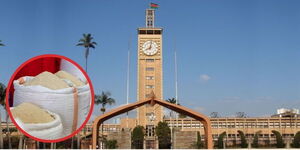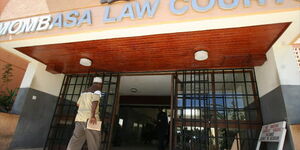Insecurity cases in the country, especially in Nairobi and its surroundings, have increased in recent months.
Despite the lamentations, Nairobi Police Commander, James Mugera, claimed that the crime rate was reduced. Mugera, on Friday, November 11, further alleged that the reports were doctored to damage the image of President William Ruto's administration.
Nonetheless, multiple reports from health practitioners and Kenyans underlined an influx in insecurity.
A health practitioner, Lilian Munyua, from Kenyatta hospital, on Tuesday, November 8, cautioned Kenyans against traversing hotspots within the country.
Munyua claimed that practitioners received several patients assaulted along Drive-In Flyover up to KCA University along Thika Road, KCA Underpass and Total Exit, Globe Roundabout and Kipande Road.
Other areas were ABC Place and Kangemi along Waiyaki Way, Naivas AllSops along Thika Super Highway, the CBD (Archives), River Road and Fig Tree area and KBC offices along Harry Thuku Road.
Speaking exclusively to Kenyans.co.ke, security expert Haggai Chogo listed some measures to help you keep safe. These are;
Carrying more than one phone
Chogo stated that the notorious bandits are usually attracted by what they see, especially gadgets.
"Most of the reported cases are usually those of people who were on phone calls when they were robbed.
"On resisting, the bandits injure the victim or even kill them to get the targeted gadgets," Chogo stated.
He emphasized that having more than one phone would help a victim who may reach out to the police via the other gadget.
Avoid hotspot areas
Chogo added that it was prudent for Kenyans to avoid hotspot areas, especially at night.
"Kenyans should be extra careful, especially when they spot an approaching vehicle, motorbike or even any suspicious person," he noted.
Walk in Groups
The security expert advised Kenyans to walk in groups whenever possible and refrain from being alone in hotspots. Nairobi residents can also normalise using cabs rather than motorbikes, matatus or walking on foot in the wee hours of the night.
CCTV
Chago urged the government to ensure surveillance cameras are available on every street for easy tracking.
“Whenever the naughty group attacks, it will be easy to follow their moves and have them arrested,” he stated.
Speaking on the causes of the high insecurity, Chogo further advised the government to enhance and revamp the security team.
“Terror groups usually begin with such acts which are always assumed. We might be thinking it is just a usual bandits' behaviour but it might be a terrorist group developing,” he opined.
He argued that the insecurity could be related to politics, where the bandits are controlled by a prominent anti-government leader who wants to prove the administration's ineptness in dealing with crime.
“We just concluded the general elections, and anyone who is still in denial could plan such attacks. The tough economy could also be the cause as Kenyans are looking for every available surviving tip,” he concluded.












